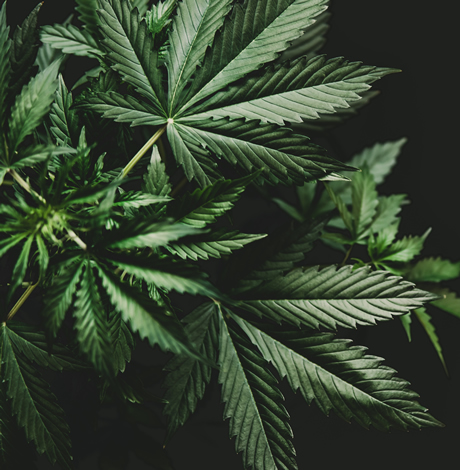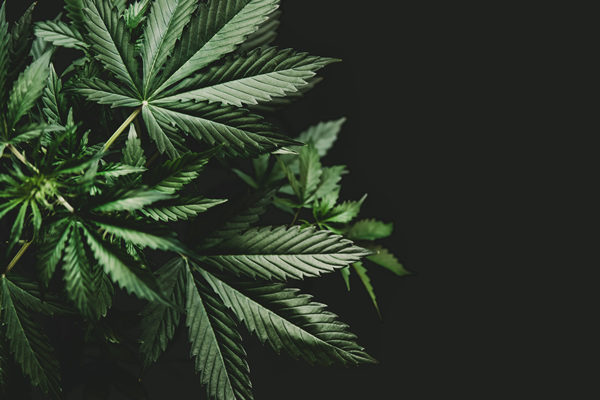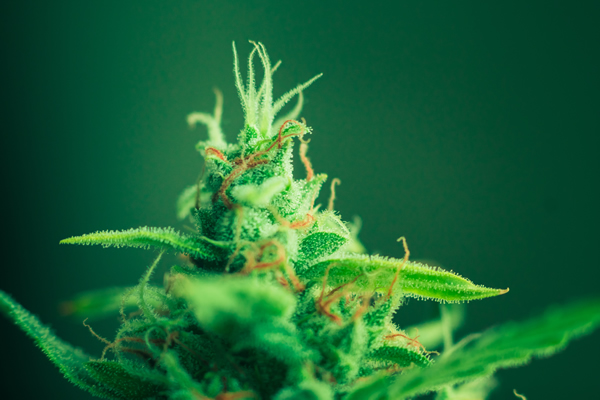Cannabis Culture
Cannabis Culture
Study finds little support for cannabis impacting cognitive abilities


Study finds little support for cannabis impacting cognitive abilities
BOULDER, Colo. — The occasional use of cannabis during late adolescence is not independently associated with adverse effects on cognitive abilities in young adulthood, according to longitudinal data published in the journal Drug and Alcohol Dependence.
A team of investigators affiliated with the University of Colorado at Boulder assessed the impact of cannabis use on cognition, executive function, and working memory in 856 individual twins. Cannabis consumers were compared to their non-using twins in late adolescence and then again in their early twenties. Most of the cannabis consuming participants in the study reported occasional use of the substance, but not daily use.
Authors found “little support for a causal effect of cannabis use on cognition. This conclusion is consistent with those from previous twin studies, which suggest that cannabis use does not cause a decline in cognitive ability among a normative cannabis using sample.”
They concluded, “Results suggest that cannabis use may not cause decline in cognitive ability among a normative sample of cannabis users.”
The findings are consistent with several prior studies which also failed to show significant changes in either cognitive performance, brain morphology, or intelligence quotient due to cannabis exposure. Specifically, a 2018 literature review published in JAMA Psychiatry concluded: “Associations between cannabis use and cognitive functioning in cross-sectional studies of adolescents and young adults are small and may be of questionable clinical importance for most individuals. Furthermore, abstinence of longer than 72 hours diminishes cognitive deficits associated with cannabis use.”
Minn. regulators to expand medical cannabis access
ST. PAUL, Minn. — Health Department representatives have announced forthcoming changes to the state’s medical cannabis program in an effort to expand patients’ access.
Beginning in August 2020, those diagnosed with chronic pain and/or age-related macular degeneration will be eligible to receive medical cannabis recommendations.
Regulators are also amending the program to allow cannabis products to be sold in the form of powders, gum, lozenges, and sublingual tablets, among other formulations. State law does not allow for the sale of herbal cannabis.
Officials also announced that they would be expanding the total number of licensed dispensaries operating within the state.
An estimated 18,000 Minnesotans are registered to legally access medical cannabis products.
Potency of CBD products often mislabeled
SEATTLE — The percentage of cannabidiol present in many commercially available CBD products differs from what is advertised on the label, according to an analysis commissioned by Leafly.com.
Authors lab tested 47 commercially available CBD-infused products. Products were purchased either online, at drug store chains, or at independent grocery stores.
Twenty-three percent of the products possessed significantly lower percentages of CBD than advertised, a finding that is consistent with prior reports. An additional 11 percent of products contained no identifiable level of CBD. Fifteen percent of the products contained higher percentages of CBD than advertised.
CBD-infused tinctures and edibles were most likely to possess accurate labeling. By contrast, CBD-infused capsules and water-based products were the least likely to be accurately labeled.
Currently, the U.S. Food and Drug Administration provides no regulatory oversight on commercially available CBD products.
Medical cannabis well tolerated in older patients: study
BE’ER-SHEVA, Israel — The use of herbal cannabis by older patients is efficacious and well-tolerated, according to longitudinal data published in the Journal of Clinical Medicine.
Israeli researchers assessed the use of cannabis products in patients ages 65 or older over a period of 18 months. Participants in the trial suffered from cancer, chronic pain, sleep disorders, post-traumatic stress, spasticity, and other ailments.
Of those patients who continued the use of medical cannabis for six-months or more, 79 percent reported either “significant” or “moderate improvement” from the treatment. The most commonly reported side effects of cannabis treatment were dizziness, fatigue, and dry mouth.
Authors concluded, “Our results show that cannabis was well tolerated by most of our patients… [and that] most of the patients were satisfied with the treatment.”
The findings are consistent with those of prior trials similarly finding that cannabis preparations are safe and effective for elderly patients.
Cannabis Culture news in the Blade is provided in partnership with NORML. For more information, visit norml.org.

Democratic Gov. Michelle Lujan Grisham earlier this month signed two separate measures into law amending the state’s marijuana policies. The first measure (House Bill 2) legalizes and regulates marijuana possession, production, and sales for adults. The second measure (Senate Bill 2) facilitates the automatic review and expungement of the records of those convicted of low-level marijuana offenses.
Lawmakers approved both bills during a special legislative session demanded by Gov. Lujan Grisham, who had been a vocal proponent of the reforms.
NORML State Policies Manager Carly Wolf said: “This is a day to celebrate! New Mexico will greatly benefit from this new revenue stream and the creation of thousands of jobs. Most notably though, legalization will spare thousands of otherwise law-abiding residents from arrest and a criminal record, and the state’s new expungement law will help provide relief to many who are suffering from the stigma and other collateral consequences associated with a prior marijuana conviction.”
The adult-use measure (House Bill 2) permits those ages 21 and older to legally purchase up to two ounces of marijuana and/or up to 16 grams of cannabis extract from licensed retailers. It also permits adults to home-cultivate up to six mature plants for their own personal use. Retail sales would begin by April 2022.
The expungement measure (Senate Bill 2) stipulates that those with past convictions for offenses made legal under this act are eligible for automatic expungement of their records. Those currently incarcerated for such offenses are eligible for a dismissal of their sentence. It’s estimated that over 150,000 New Mexico residents are eligible for automatic expungement under this measure, according to the Department of Public Safety.
Cannabis Culture news in the Blade is provided in partnership with NORML. Visit norml.org for more information.
Cannabis Culture
Delaware cannabis activists take on corporate marijuana
Criticism from medical marijuana operators claimed that HB150 offers too many cultivation and retail licenses

As the country moves forward with sweeping changes in cannabis policy reform, locals in Delaware are tangling with corporate, multi-state medical marijuana permit holders to pass a bill for full legalization.
Adult-use activists and registered medical patients were stunned to hear opposing testimony from Delaware’s medical marijuana operators. Patients already deal with limited access and costly products. Now, many see the established industry voicing opposition as simply obstructing the progress of adult-use legislation. In response, some patients are now staging a boycott of the regulated dispensaries.
During the first committee hearing for HB150, Delaware’s adult-use bill, four of the state’s six currently licensed, multi-million dollar medical cannabis facilities offered negative testimony.
Zoë Patchell, executive director of Delaware CAN responded: “This market belongs to the long-time consumers, patients, and activists. We create the demand, we’ve been the ones driving the reform efforts, and we pay the prices at dispensaries. Cannabis is more than a market – cannabis is a community. These companies cannot reasonably fathom that we are going to purchase cannabis from any entity that has proven to put profits over patients. And now they seem willing to put consumers’ lives and freedom at risk just to hold out for an unfair advantage in the industry.”
These included publicly traded Columbia Care, “Fresh Delaware” aka CCRI, CannTech Research Inc., and the owner of EZY Venture aka “The Farm.”
They all went on record condemning HB150, and pushing a false narrative about oversupply. The core demand from the permit cartel was some protection for their private business interests with guaranteed adult-use licenses.
Criticism from the medical marijuana operators claimed that HB150 offers too many new cultivation and retail licenses, underlined by deep yet unfounded fears that the new competition would put their companies out of business.
Patchell noted, “We are not going to sit back while multi-state corporate entities, that already monopolize East Coast medical markets, work to undermine our social equity and micro-license provisions.”
Cannabis Culture news in the Blade is provided in partnership with NORML. Visit norml.org for more information.
Cannabis Culture
Virginia marijuana legalization takes effect July 1
Adult possession of cannabis up to one ounce without penalty

Following legislative approval of Democratic Gov. Ralph Northam’s amendments to Senate Bill 1406 and House Bill 2312, Virginia became the first southern state to legalize the possession and use of marijuana by adults.
Senate Bill 1406, introduced by Sen. Adam Ebbin (D-30) and Senate President Pro Tempore Senator Louise Lucas (D-18), and House Bill 2312, patroned by House Majority Leader Delegate Charniele Herring (D-46), establish a statutory timeline for the legalization of the commercial marijuana market in Virginia. The measure also permits for the personal possession and cultivation of cannabis by those ages 21 or older.
Last week, Gov. Northam recommended changes to the legislation to permit the personal use provisions of the law to take effect on July 1, 2021 rather than on January 1, 2024, the enactment date initially approved by lawmakers. A majority of the legislature concurred with that change.
Therefore, beginning July 1, 2021, adults will be permitted to possess up to one ounce of marijuana and to cultivate up to four cannabis plants per household without penalty.
The timeline by which state regulators have to enact provisions licensing commercial cannabis production and sales remains July 1, 2024.
Commenting on final passage, NORML Development Director Jenn Michelle Pedini, who also serves as executive director of Virginia NORML, said: “This is an incredible victory for Virginia. Legalization will bring an end to the thousands of low-level marijuana infractions occurring annually in the Commonwealth — ending a discriminatory practice that far too often targets Virginians who are young, poor, and people of color.”
Majority Leader Charniele Herring added: “It is a huge day for equity in the Commonwealth. Virginia is now the first state in the South to legalize recreational marijuana use, and I am so proud to have been able to carry this monumental legislation.”
Sen. Ebbin said, “The passage of SB1406 caps off years of struggle to reform our broken and outdated marijuana laws and begins the deliberate steps to repeal the harms of the failed prohibition. I am thankful to NORML, the governor, and my colleagues for moving this 283 bill from inception to passage over the last four months, and look forward to continuing to partner with them to establish a regulated, equity focused, adult-use marketplace in the coming years.”
Newly released statewide polling data finds that 68 percent of registered voters in Virginia, including majorities of Democrats and Republicans, support legalizing marijuana for adults.
Additional amendments added by Gov. Northam will allow the sealing of records related to crimes involving the misdemeanor possession of marijuana with the intent to distribute. Those records will begin to be sealed starting on July 1, 2021. Separate legislation enacted in 2020 previously sealed records related to misdemeanor marijuana possession.
Records specific to the simple possession of marijuana and/or misdemeanor possession with intent to distribute records will be automatically expunged no later than 2025. Those with records specific to crimes involving the felony possession of marijuana with the intent to distribute may begin to petition the courts for an expounging of their records in 2025.
The bill also allows for the re-sentencing of individuals currently incarcerated for marijuana-related offenses. The measure permits those individuals to have a hearing before the court that originally sentenced them, with legal counsel provided for indigent individuals. However, this portion of the bill must be reenacted in 2022.
The legislation also establishes an independent agency, the Virginia Cannabis Control Authority, to oversee the establishment of regulations that will govern the adult-use market. This agency is set to convene this summer. The remainder of the 300-page bill, which details the regulatory and market structure and social equity provisions, is subject to a second review and vote by the Assembly next year.
Cannabis Culture news in the Blade is provided in partnership with NORML. Visit norml.org for more information.
-

 U.S. Supreme Court3 days ago
U.S. Supreme Court3 days agoSupreme Court upholds ACA rule that makes PrEP, other preventative care free
-

 U.S. Supreme Court4 days ago
U.S. Supreme Court4 days agoSupreme Court rules parents must have option to opt children out of LGBTQ-specific lessons
-

 National5 days ago
National5 days agoEvan Wolfson on the 10-year legacy of marriage equality
-

 Congress4 days ago
Congress4 days agoSenate parliamentarian orders removal of gender-affirming care ban from GOP reconciliation bill












